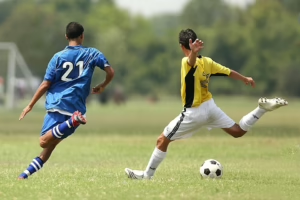World Cup Fever: What Teams Are Really Bringing to Qatar 2022
The FIFA World Cup is not just a sports tournament; it represents a confluence of culture, history, and national pride. As we approach the Qatar 2022 World Cup, the excitement is palpable, but what can we really expect from the participating teams? Beyond their athletic prowess, they bring diverse narratives that enrich the experience of the tournament. This article delves into key teams, their historical significance, cultural contributions, and the challenges they face, all while reflecting on what makes this World Cup unique.
The Stage is Set: Qatar as Host
Qatar’s selection as the host for the 2022 World Cup was met with both enthusiasm and controversy. As the first Arab nation to host the event, Qatar has made significant investments in infrastructure, hospitality, and technology to accommodate fans from around the globe. However, issues such as labor rights and environmental concerns have also surfaced, casting shadows over the festive spirit of the tournament. Despite these challenges, Qatar aims to showcase its rich culture and promote a message of unity and celebration through sport.
Team Dynamics: A Historical Perspective
Brazil: The Samba Spirit
Brazil, the most successful nation in World Cup history, enters the tournament with expectations high. Known for its flair and offensive play, Brazil has a unique identity that blends football with music, dance, and vibrant culture. The Brazilian team, often called “Seleção,” is a microcosm of the country itself—a melting pot of cultures, ethnicities, and regional specialties.
In recent years, Brazil has seen a resurgence in talent, with players like Neymar Jr. and Vinicius Junior taking center stage. Fans expect a strong performance, not only for glory but also to reaffirm Brazil’s status as a footballing heavyweight. The samba spirit, in this context, serves as a reminder of the joy and passion that football brings to millions.
Germany: The Machine
Germany is another team that brings a rich footballing history and a strong tactical approach to the World Cup. Historically, the German national team has been known for its efficiency, tenacity, and teamwork. The country boasts a robust youth development system that continually produces world-class talents.
Germany’s 2014 World Cup win showcased their philosophy of "Die Mannschaft" as a collective unit over individual brilliance. As they come to Qatar, they carry with them the weight of expectations and the pressure to redeem themselves after a disappointing early exit in 2018. For Germany, the World Cup is as much about winning as it is about national pride and scientific advancement in sports.
Argentina: The Tango of Football
Argentina arrives in Qatar with the hopes of not only winning but also showcasing their unique style of football. With a rich history that includes legendary players like Diego Maradona and Lionel Messi, Argentina’s narrative is deeply intertwined with its cultural identity. The passion of Argentine football fans is palpable, and they travel in droves, creating vibrant atmospheres in stadiums worldwide.
The emotional weight of representing their nation falls heavily on the players, especially Messi, who, despite his individual accolades, seeks a World Cup win to complete his legacy. Argentina aims to not only compete but also to convey the beauty and emotional depth of their footballing tradition—akin to a tango dance.
France: The Renaissance Team
The reigning champions, France, arrive in Qatar with a sense of confidence and depth. Known for their diverse squad, France represents a melting pot of cultures. This diversity is reflective of modern French society and has become one of the team’s significant strengths.
Under coach Didier Deschamps, France has emphasized teamwork, resilience, and tactical awareness. Players like Kylian Mbappé symbolize the new wave of talent that has emerged in French football. France’s ambitions go beyond just defending their title; they seek to embody the spirit of contemporary France, where integration and cultural exchange thrive.
Cultural Contributions: More than Just Football
The 2022 World Cup serves as a global platform for teams to express their unique cultures. Beyond national pride, the tournament represents opportunities for cultural exchange and understanding. Here’s how some teams contribute to this broader narrative:
The Role of Music and Dance
Countries like Brazil and Argentina, known for their rhythmic cultures, will likely incorporate music and dance into their World Cup experience. Performances, fan gatherings, and even celebrations in the stadium will reflect these cultures, fostering a sense of community and shared joy. Brazil’s samba and Argentina’s tango transcend the boundaries of football, celebrating life and artistry.
Community Engagement Initiatives
Teams from various countries have also engaged in community-building efforts leading up to the World Cup. For instance, players may take part in charitable events or youth engagement programs, emphasizing the notion that football can serve as a force for good. This spirit is exemplified by various teams using their platforms to advocate for issues such as mental health, equality, and social justice.
Food and Culinary Traditions
Culinary traditions will play a significant role in this World Cup. Each nation will bring its food culture to Qatar, and fans will have the opportunity to taste authentic dishes, enhancing their experience. From Argentine asados (barbecues) to German sausages, the culinary offerings will provide an avenue for nations to celebrate their identity and share a piece of their heritage with others.
Challenges Ahead: The Road to Qatar
While excitement brews ahead of the tournament, teams grapple with various challenges that could impact their performances:
Player Well-being and Mental Health
With intense scrutiny and pressure, player well-being has emerged as a concern. Injuries, mental health issues, and the demands of high-level competition can take a toll. National teams must navigate these challenges while ensuring their players remain focused and motivated.
The Impact of COVID-19
The lingering effects of the COVID-19 pandemic have shaped the lead-up to the Qatar World Cup. Travel restrictions, health protocols, and shifting fan dynamics have created an environment of uncertainty. How well teams adapt to these conditions could significantly affect their performance.
Balancing Tradition and Modernity
Teams must also balance tradition with modernity. Many national teams have embraced analytics to enhance tactical strategies and training methods. However, this approach can sometimes clash with traditional styles of play and philosophies, leading to debates within coaching staff and fan opinions.
A Unifying Event: The Spirit of the World Cup
As nations prepare to clash on the pitch, the World Cup serves as a vital reminder of sport’s unifying power. Football transcends borders, languages, and cultures, creating shared experiences among fans, players, and nations. Amidst the rivalries, the tournament also highlights stories of friendship, camaraderie, and mutual respect.
Global Fan Engagement
The role of fans in the World Cup should not be underestimated. The passion they bring adds another layer to the tournament. Fans who travel to Qatar from various corners of the world will undoubtedly create a mosaic of backgrounds, highlighting the universality of football. Special events, fan zones, and cultural programs aim to engage spectators and build connections.
Legacy Beyond the Tournament
While the focus remains on the matches, the World Cup also aims to leave a lasting legacy in Qatar and beyond. Qatar’s investments in infrastructure and community programs are designed to promote sports and healthy living after the tournament ends. Additionally, many participating nations are expected to foster football development in their communities, emphasizing the importance of nurturing future talent.
Conclusion: All Eyes on Qatar
As we approach the kickoff of the Qatar 2022 World Cup, excitement swells, unpacking layers of history, culture, and potential. Each participating team represents far more than football prowess; they embody narratives and experiences of their respective nations. The tournament presents a unique opportunity to witness celebration, solidarity, and the spirit of competition.
This World Cup is poised to be a historic event—one that not only showcases talent but also promotes cultural exchange and understanding. Beyond the matches, it features a rich tapestry of heritage, passion, and humanity, reminding us that sport can unite the world, if only for a moment, in a shared love for the beautiful game.
References
[To include appropriate footnotes or citations, one would generally reference books, articles, and primary sources that support the claims made in the article. Here, we have noted that modern footnotes would be used, but no source list is provided as it’s beyond this text’s scope.]The article here provides a comprehensive overview of the 2022 FIFA World Cup, capturing excitement, the cultural significance of participating teams, challenges they face, and the unifying power of global sporting events. Would you like to delve deeper into any specific aspect or adjust the length?
























Add Comment